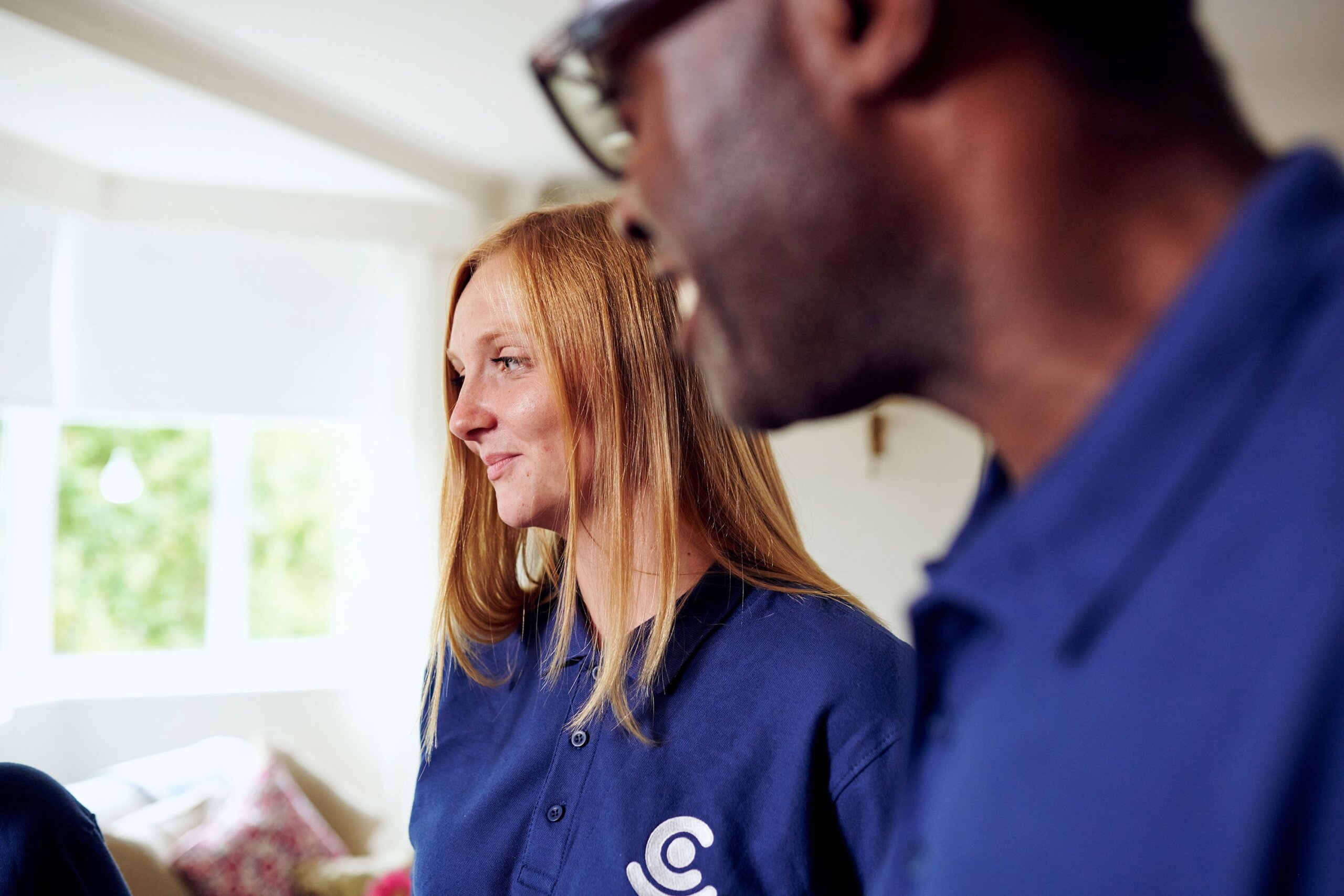
Image: Ashley-Louise Lumley, Curam champion. Credit Curam.
Page contents
Mental wellbeing and healthy work/life balance are essential
Being a care professional can be as relentless as it is rewarding. Ongoing staffing shortages in our sector leave many working under intense pressure, stretched to our limits to ensure our clients are well looked after. This is a global reality, with the World Health Organisation reporting that a quarter of us experience anxiety, depression and burnout symptoms.
After more than ten years in the field, I’ve learned that mental wellbeing and a healthy work/life balance are essential. And this isn’t just for our sake, but also for our clients. The traditional care agency structure makes this balance difficult, but recent advances in technology that are helping to modernise the sector are allowing us to take more control over our careers. Since embracing these opportunities, including online care platforms, I have seen positive shifts in my mental health, my family life and my job satisfaction.
I want to share my reflections on how I protect my mental health while caring for others.
Reducing stress through control
One of the most significant changes I’ve made is seeking more flexibility. By offering my services through an online platform, I have been able to choose when and where I work. This flexibility allows me to balance my career with family needs and my own wellbeing.
Before making this change, I was doing long journeys between clients at my own expense and juggling family routines. Now, I can do the school run without stress and spend more time at home, fitting time with clients around my life, which is incredibly valuable.
Building stronger relationships
Human connection is so important for mental health. We think of this in terms of our clients at Curam, but as we spend our days with them, it benefits care professionals too. Since gaining control of my work life, I can choose to work with clients who are the right fit for me, and vice versa, so relationships are more meaningful.
These relationships improve quality of care and the stronger the bond, the more rewarding the work feels. Because I travel less and am paid fairly, I can invest more time into clients, getting to know them, understanding their needs and supporting them in personal ways. As a result, I feel more accomplished than drained at the end of the day.
Recognising the signs of stress
Although flexibility and choice are instrumental in reducing stress, the nature of care work can still be mentally taxing at times. Over the years, I’ve come to understand that we need to recognise stress early and address it before it escalates.
Common signs of stress include difficulty relaxing, constant worry, mood swings, and changes in eating habits. Symptoms can sneak up on you, especially in a high-pressure job like care. Spotting the signs and managing them is the best way to stop them developing into something more serious, like burnout.
Tips for managing stress
So how do you dissipate stress? Here are some of the techniques I’ve picked up over the years:
- Eat well and stay active: It’s amazing how much of a difference a balanced diet and regular movement can make. A simple walk outside or making sure I have time for a proper meal helps me recharge.
- Build resilience: Organising your time will help. I started to create to-do lists and arrange them in order of importance. Having clear achievable targets is more manageable and ticking them off gives a real sense of achievement. Further, building a support network is key to building resilience. Having a way to release that stress by having someone to talk things out with can really help you feel strong and supported.
- Take time for yourself: Self-care shouldn’t be a luxury. Whether it’s taking five minutes to practice mindfulness or ensuring you spend one evening a week doing something that fulfils and relaxes you, these moments are essential to maintaining balance.
- Set boundaries: You have a career where you are not the priority, so it’s common for care professionals to lose sight of their needs. Saying no can be difficult, but it makes a difference in protecting your energy and mental health and avoiding burnout.
When to seek help
Sometimes, despite our best efforts, stress can be overwhelming. Those who look after people for a living might find it harder to reach out and find help for themselves, but there are plenty of resources available. Explore helplines such as Anxiety UK, Citizens Advice and Mind.
Healthy career, happy life
Over the years, I’ve come to realise that I care for other people best when I care for myself too. The flexibility to choose my clients, control my schedule and work in a way that fits my life has not only improved my mental health but made me better at my job as I can provide more attentive, compassionate care to my clients who need it.
If you’re feeling the pressure of balancing care work with your personal life, I hope you can take the steps to seek the balance and control needed to protect your wellbeing so you can keep doing the work that really matters.

